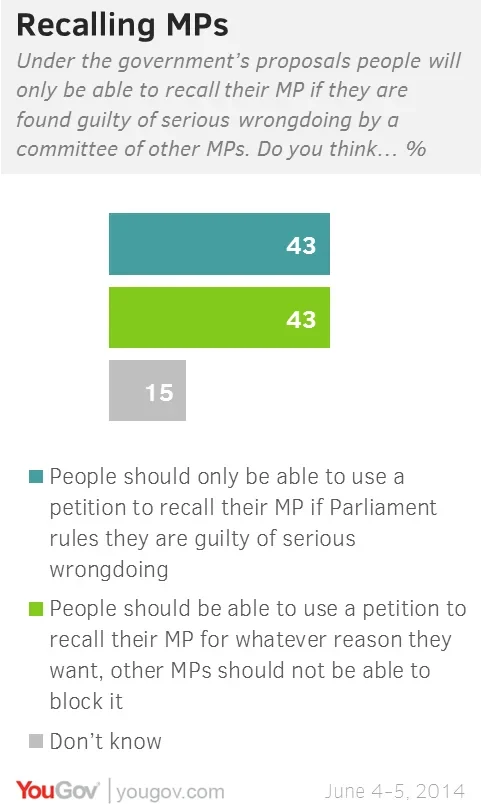While 68% support the public being able to recall MPs, they are divided 43-43% over whether MPs should be able to trigger the power
The Queen announced in her speech on Wednesday that the government would introduce a new bill to give the public the power to recall MPs. But after years of wrangling (the idea was in both the Conservative and Liberal Democrats 2010 manifestos) the bill is accused of being “watered down”. Rather than the public being able to trigger a by-election if more than 10% of constituents sign a petition, the House of Commons will first have to decide if an MP has engaged in serious wrongdoing, before the petition can become effective.

There is clear public support for the general idea, with 68% of British people supporting being able to recall MPs if 10% of constituents sign a petition.
However, on the actual bill that will pass through Parliament, people are divided. 43% side with the government, that people should only be able to use a petition to recall their MP if Parliament first rules they are guilty of wrongdoing, and 43% prefer the tougher idea, that a petition should be effective regardless of whether MPs think it is suitable.
Conservative MP Zac Goldsmith said the decision to let MPs decide when a public petition can be used to recall an MP will make voters feel “they’ve been duped. The next time an MP gets into terrible trouble, voters will learn they can't recall their MP and this recall bill is worth absolutely nothing.” But defenders of the bill say that giving the public the power to directly recall MPs without oversight from the Commons would result in “kangaroo courts”, and could lead to instability, with MPs rebelling more frequently for fear of their constituents.
Image: Getty







